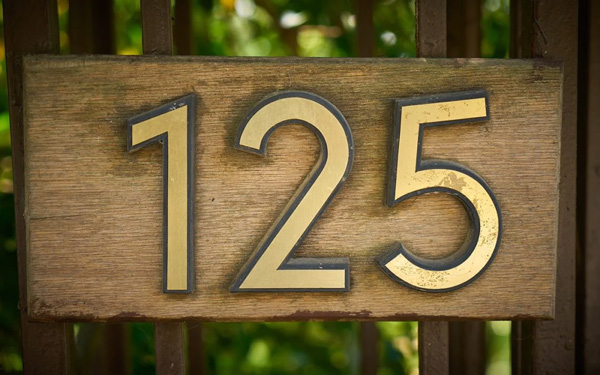How to Help Police Find Your Home Fast

During a Home Invasion Robbery Seconds Matter
A home invasion robbery ranks high up there among everyone’s worst nightmares. Yet recent incidents we’ve reported on here at Deep Sentinel indicate, home invasion robberies occur almost daily across the U.S.
In both home invasion cases we highlighted on this site, the families were innocent law-abiding citizens with no reason to ever expect a home invasion. In one instance several family members were injured and in another the family dog was shot and wounded while trying to protect a teenage boy who was home at the time of the robbery.
These home invasion victims all called 911 immediately. The police were minutes away. But every second of the home invasion must have seemed like a horrific eternity.
We hope a home invasion robbery never happens to you. But if it does, you would want the police to get there as quickly as possible. That means you need to make sure it is easy for the police to locate your home.
Challenges Police Face in Finding Your Home
We’ve all been there. Literally. We are following our GPS directions. Suddenly the voice says, “You have arrived at your destination.” Really? You look around and wonder which house it could possibly be. Especially if it is after dark.
Now imagine you’re the police arriving and there’s a home invasion robbery happening. Or you’re away on vacation and a neighbor has called 911 to report a burglary in progress at your house.
Most people don’t realize that the 911 system is hindered by a location information system less precise than those used by Uber and other commercial apps. It has to do with regulations about government and privacy. It also has a lot to do with government inaction and lack of updating the technology used by most law enforcement agencies in the U.S. And basically, the fact that the 911 system was created in an era before cell phones.
Often there is no direct connection between the cell phone and the 911 operator, according to a recent report on this problem in NetworkWorld.
“The information is coming from the cellular network, not the device. Only by questioning the caller about landmarks and other correlating information can public safety officials be certain they have accurate location data,” the article states.
The FCC is working on improving this situation and has a timeline for implementing updates to the 911 system. You can view it here.
But in the meantime, it is up to you to make your home easy for the police to find, especially at night.
Tips to Make Your Home More Visible to the Police
During a home invasion robbery or any other type of emergency, you may not have time to give the 911 dispatcher detailed descriptions on how to find your house or what it looks like.
Here are some things you can do to prevent vital seconds being lost if police can’t find your house:
- Your home’s street address number is the most important piece of information the police have. Making sure your address number is clearly visible from the street could save your life.
- Invest in a house number sign that lights up at night. Many of these are solar-powered and require no electrical connection.
- Use house numbers that are at least four inches high.
- Choose a color for house numbers that highly contrasts with the exterior color of your home if the numbers are directly attached to the house. Use white numbers if your house is painted a dark color and black numbers if your house is painted a light color.
- Trim back any shrubbery that covers up your house number. Remember to check this more frequently during spring and summer months.
- Consider having the house number clearly displayed in multiple locations. It can be painted on the curb in front of your home and on the mailbox. This is especially important if your home is set back from the street.
- Make sure your unit number is clearly visible from paths if you live in a multi-unit development. Signs with maps showing unit numbers and locations need to be at the main entrance and near paths throughout the development.
- Provide your local police department with an access code if you live in a gated community.
- Keep any path leading to your home clear of debris, children’s toys and overgrown foliage.
- Be concerned if people tell you they got lost when they first visit your home.
Above all else, prioritize home safety over home exterior décor. Big lighted house numbers may not be correct for the period of your 1920s bungalow or red brick colonial. But their visibility from the street could save your life or the life of a family member or pet during a home invasion when seconds really do matter.